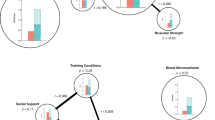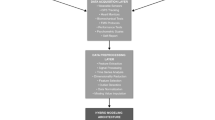Abstract
Previous reports have shown a lower proportion of the ACTN3 X/X genotype (R577X nonsense polymorphism) in sprint-related athletes compared to the general population, possibly attributed to impairment of muscle function related to α-actinin-3 deficiency. In the present study, we examined the frequency of the X/X genotype in both Black and White elite-level bodybuilders and strength athletes in comparison to the general population. A reference population of 668 Whites (363 men and 305 women) and 208 Blacks (98 men and 110 women) was genotyped for the ACTN3 R577X polymorphism. Strength athletes (52 white and 23 black; 4 women) consisting predominantly of world class and locally competitive bodybuilders, and elite powerlifters were recruited and similarly genotyped. Significantly lower X/X genotype frequencies were observed in the athletes (6.7%) vs controls (16.3%; P=0.005). The X/X genotype was significantly lower in White athletes (9.7%) vs controls (19.9%; P=0.018). No black athletes (0%) were observed with the X/X genotype, though this finding only approached statistical significance vs controls (4.8%; P=0.10). The results indicate that the ACTN3 R577X nonsense allele (X) is under-represented in elite strength athletes, consistent with previous reports indicating that α-actinin-3 deficiency appears to impair muscle performance.
Similar content being viewed by others
Log in or create a free account to read this content
Gain free access to this article, as well as selected content from this journal and more on nature.com
or
References
Beggs AH, Byers TJ, Knoll JH, Boyce FM, Bruns GA, Kunkel LM : Cloning and characterization of two human skeletal muscle alpha-actinin genes located on chromosomes 1 and 11. J Biol Chem 1992; 267: 9281–9288.
Blanchard A, Ohanian V, Critchley D : The structure and function of alpha-actinin. J Muscle Res Cell Motil 1989; 10: 280–289.
North KN, Yang N, Wattanasirishaigoon D, Mills MA, Easteal S, Beggs AH : A common nonsense mutation results in α-actinin-3 deficiency in the general population. Nat Genet 1999; 21: 353–354.
MacArthur DG, North KN : ACTN3: a genetic influence on muscle function and athletic performance. Exerc Sport Sci Rev 2007; 35: 30–34.
North KN, Beggs AH : Deficiency of a skeletal muscle isoform of alpha-actinin (alpha-actinin-3) in merosin-positive congenital muscular dystrophy. Neuromuscul Disord 1996; 6: 229–235.
Mills MA, Yang N, Weinberger RP et al: Differential expression of the actin-binding proteins, α-actinin-2 and -3, in different species: implications for the evolution of functional redundancy. Hum Mol Genet 2001; 10: 1335–1346.
Yang N, MacArthur DG, Gulbin JP et al: ACTN3 genotype is associated with human elite athletic performance. Am J Hum Genet 2003; 73: 627–631.
Niemi AK, Majamaa K : Mitochondrial DNA and ACTN3 genotypes in Finnish elite endurance and sprint athletes. Eur J Hum Genet 2005; 13: 965–969.
Papadimitriou ID, Papadopoulos C, Kouvatsi A, Triantaphyllidis C : The ACTN3 gene in elite Greek track and field athletes. Int J Sports Med, (in press).
Moran CN, Yang N, Bailey ME et al: Association analysis of the ACTN3 R577X polymorphism and complex quantitative body composition and performance phenotypes in adolescent Greeks. Eur J Hum Genet 2007; 15: 88–93.
Ferrell RE, Conte V, Lawrence EC, Roth SM, Hagberg JM, Hurley BF : Frequent sequence variation in the human myostatin (GDF8) gene as a marker for analysis of muscle-related phenotypes. Genomics 1999; 62: 203–207.
Lindle RS, Metter EJ, Lynch NA et al: Age and gender comparisons of muscle strength in 654 women and men aged 20–93 year. J Appl Physiol 1997; 83: 1581–1587.
Alway SE, Brumbt WH, Gonyea WJ, Stray-Gundersen J : Contrasts in muscle and myofibers of elite male and female bodybuilders. J Appl Physiol 1989; 67: 24–31.
Sale DG, MacDougall JD, Alway SE, Sutton JR : Voluntary strength and muscle characteristics in untrained men and women and male bodybuilders. J Appl Physiol 1987; 62: 1786–1793.
Katch VL, Katch FI, Moffatt R, Gittleson M : Muscular development and lean body weight in body builders and weight lifters. Med Sci Sports Exerc 1980; 12: 340–344.
Lemon PW, Tarnopolsky MA, MacDougall JD, Atkinson SA : Protein requirements and muscle mass/strength changes during intensive training in novice bodybuilders. J Appl Physiol 1992; 73: 767–775.
Vincent B, De Bock K, Ramaekers M et al: The ACTN3 (R577X) genotype is associated with fiber type distribution. Physiol Genomics (in press).
Alway SE, Grumbt WH, Stray-Gundersen J, Gonyea WJ : Effects of resistance training on elbow flexors of highly competitive bodybuilders. J Appl Physiol 1992; 72: 1512–1521.
Wittke-Thompson JK, Pluzhnikov A, Cox NJ : Rationale inferences about departures from Hardy–Weinberg equilibrium. Am J Hum Genet 2005; 76: 967–986.
MacArthur DG, Seto JT, Raftery JM et al: Loss of ACTN3 gene function alters mouse muscle metabolism and shows evidence of positive selection in humans. Nat Genet 2007; 39: 1261–1265.
Clarkson PM, Devaney JM, Gordish-Dressman H et al: ACTN3 genotype is associated with increases in muscle strength in response to resistance training in women. J Appl Physiol 2005; 99: 154–163.
Delmonico MJ, Kostek MA, Doldo NA et al: The alpha-actinin-3 (ACTN3) R577X polymorphism influences knee extensor peak power response to strength training in older men and women. J Gerontol Med Sci 2007; 62: 206–212.
Acknowledgements
We thank the volunteers who made this study possible. This research was supported by the Intramural Research Program of the NIH, National Institute on Aging, AG16205, AG21500, and AG22791.
Author information
Authors and Affiliations
Corresponding author
Rights and permissions
About this article
Cite this article
Roth, S., Walsh, S., Liu, D. et al. The ACTN3 R577X nonsense allele is under-represented in elite-level strength athletes. Eur J Hum Genet 16, 391–394 (2008). https://doi.org/10.1038/sj.ejhg.5201964
Received:
Revised:
Accepted:
Published:
Issue date:
DOI: https://doi.org/10.1038/sj.ejhg.5201964
Keywords
This article is cited by
-
The relationships between ACTN3 rs1815739 and PPARA-α rs4253778 gene polymorphisms and athletic performance characteristics in professional soccer players
BMC Sports Science, Medicine and Rehabilitation (2023)
-
ACTN3 R577X variant: could it be a determinant of sports performance in elite athletes in a Turkish population?
Journal of Genetics (2022)
-
ACTN3 R/X gene polymorphism across ethnicity: a brief review of performance gene
Sport Sciences for Health (2020)
-
More than a ‘speed gene’: ACTN3 R577X genotype, trainability, muscle damage, and the risk for injuries
European Journal of Applied Physiology (2019)
-
The influence of ACE ID and ACTN3 R577X polymorphisms on lower-extremity function in older women in response to high-speed power training
BMC Geriatrics (2013)



